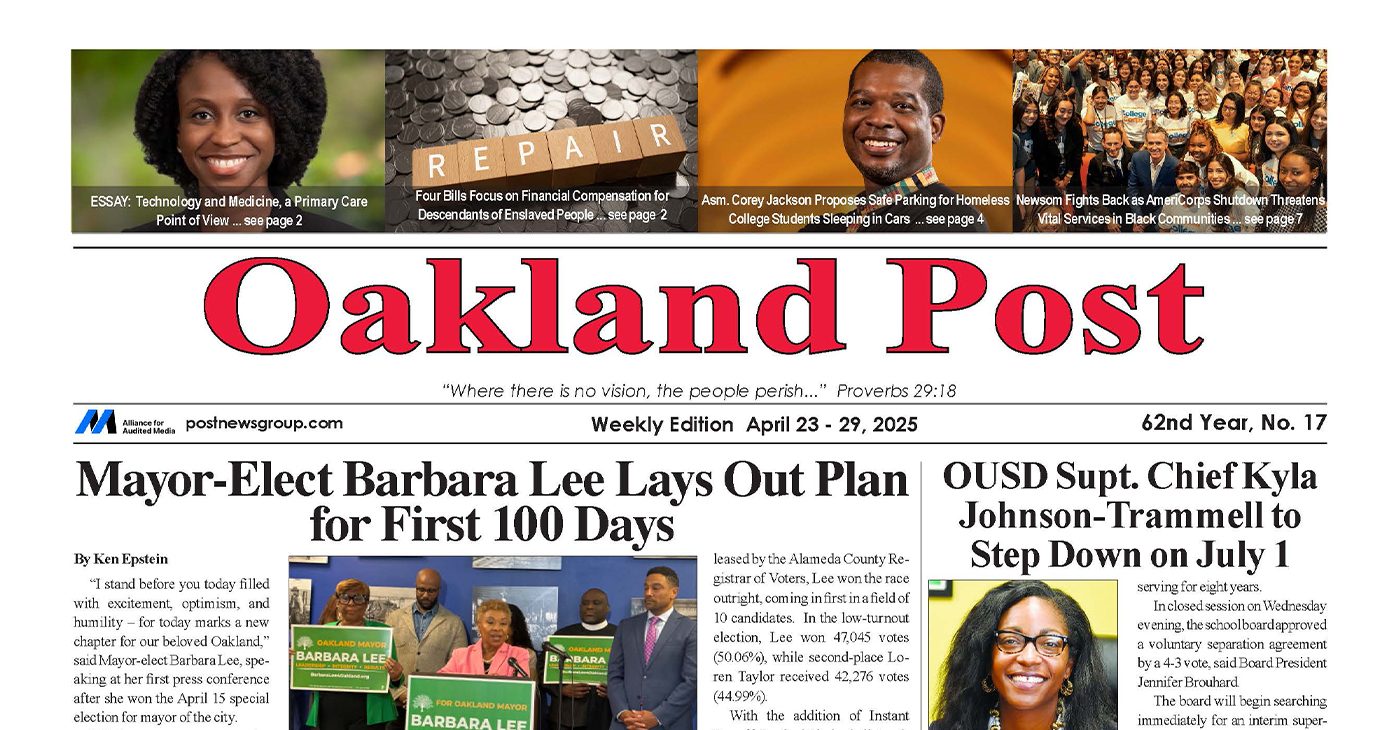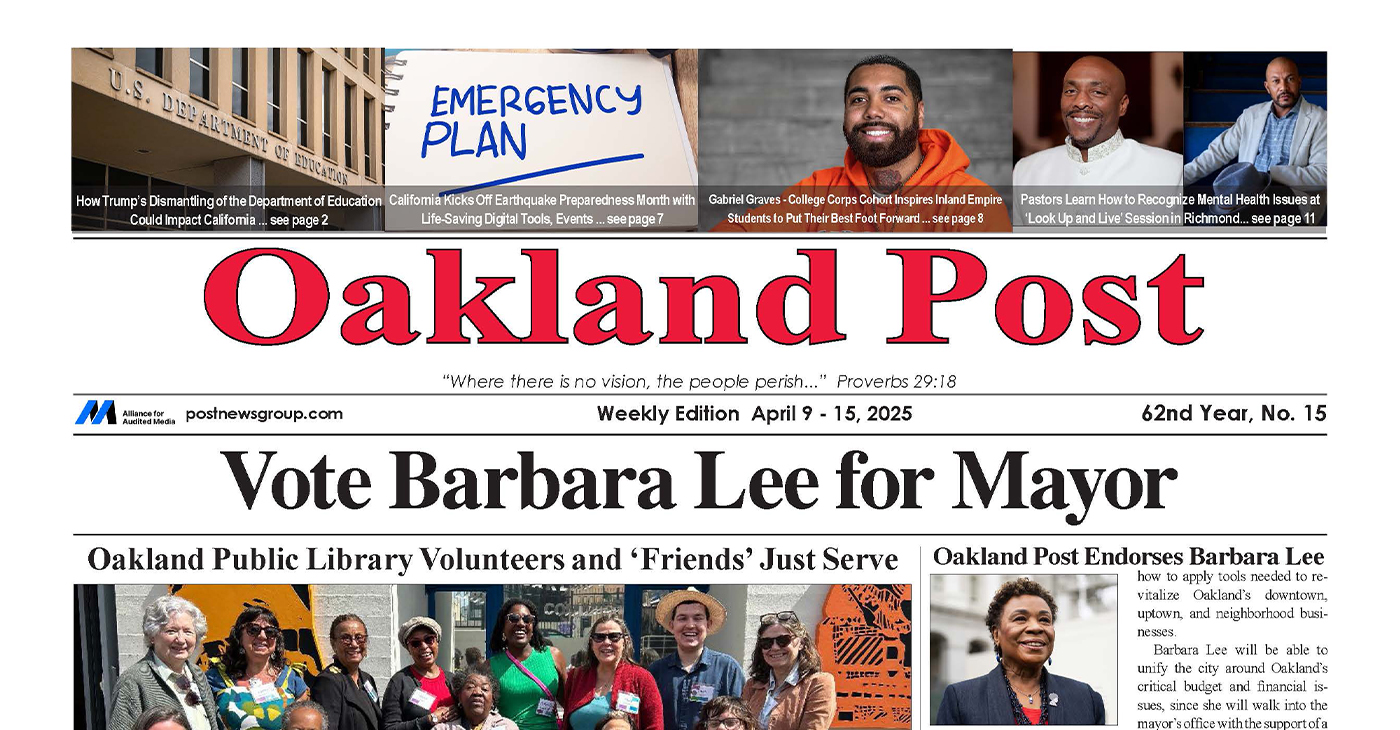Black History
Jack and Jill of America, Inc. South Los Angeles Chapter
LOS ANGELES SENTINEL — During the past sixty years, the South Los Angeles Chapter has continued to be a beacon in the community.
By Sentinel News Service
Jack and Jill of America’s South Los Angeles Chapter celebrated their Founder’s Day on Sunday January 27th at Elise’s Tea House in Long Beach. Past Chapter Presidents, Officers, and members who have held National and Regional posts were in attendance. The South Los Angeles Chapter was organized in 1956 in the home of Velma Woods.
Jo Anna Haynes served as the first President of the Mother’s Club. Jewel Jackson was installed as the first President in July 1957.
During the past sixty (60) years, the South Los Angeles Chapter has continued to be a beacon in the community. The chapter has continued to provide support to community organizations that work closely with at risk children throughout South Los Angeles.
The South Los Angeles Chapter has also made significant contributions both on the national and regional level. Dr. Ramona W. Arnold served as the 12th National President of Jack and Jill of America, Inc. During President Arnold’s leadership she started the relationship with Africare that has continued throughout today. President Arnold commissioned the first history book about Jack and Jill of America, Inc. and developed the first convention handbook and national forms that are still used today. There have been two Far West Regional Directors who served from South Los Angeles Chapter: Dr. Jacki Parker Scott (1987-1989) and Tracie Thompson (2010-2011). Three members have also served in the role of Far West Secretary – Treasurer: Inez Wauls (1975-1977) and (1977- 1979), Gloria J. Riddick-Williams (1997-1999) and Tracie Thompson (2009-2010). Dr. Jacki Parker Scott also served as National Program
Director and during her tenure she developed a Teen Leadership Summit Module that became a prototype for leadership development for our teens.

[/media-credit] Congresswoman Maxine Waters (Center) visiting the South Los Angeles Chapter of Jack and Jill.
The South Los Angeles Chapter has had several Far West Teen Presidents and a number of teens who have served in other regional capacities.
Throughout the years, our community service projects have included: feeding the homeless, visiting senior citizen centers and nursing facilities, donating school supplies to a homeless shelter, developing a partnership with the Mayme A. Clayton Library and Museum, donating socks and gently used clothing to a homeless shelter, organizing a Career Day Program, and volunteered with the Omega Educational Foundation Annual Youth Leadership Conference.
The chapter has also sponsored several Casino night events, Jazz Brunches, Oldies But Goodies Dance, and Fashion Shows as part of our fund raising events. The proceeds from many of these events have gone to assist the Omega Educational Foundations with the Annual Youth Leadership Conference, Britt-care, and CLIMB. All these organizations provide support and assistance to needy families and children throughout the South Los Angeles area.
In 2015 the South Los Angeles Chapter was awarded a $3,000 Jacqueline Robinson Grant from the Jack and Jill Foundation. The grant award was utilized to conduct a one day workshop entitled “Our Children Are Not for Sale: Human Sex Trafficking Awareness and Prevention in South Los Angeles.”
On November 5, 2017, the mothers of South Los Angeles Chapter will celebrated its 60th year anniversary of its founding. And, we will reaffirmed our commitment to continue to stay true to the mission and goals of Jack & Jill of America, Inc. through the phenomenal programming for our children and service to our community. January 15, 2018 the Jack & Jill of America South Los Angeles Chapter became the first chapters to participate in the 33rd Annual Kingdom Day Parade, which is one of the Nation’s biggest MLK celebrations.
The theme was “When They Go Low, We Go High.”
Opening the latest Programming year was met with a resounding moment when Congresswoman Maxine Waters surprised The South Los Angeles Chapter by attending their first members meeting of the 2018-2019 Programming year on June 30, 2019. Her motive wasn’t political by any means. Congresswoman Waters only priority was to remind mother members of their purpose and the nation’s dire need to continue The Jack and Jill of America legacy which is to create, develop, & nurture leaders from birth, by any means necessary!
Activism
Oakland Post: Week of April 23 – 29, 2025
The printed Weekly Edition of the Oakland Post: Week of April 23 – 29, 2025

To enlarge your view of this issue, use the slider, magnifying glass icon or full page icon in the lower right corner of the browser window.
Activism
Oakland Post: Week of April 16 – 22, 2025
The printed Weekly Edition of the Oakland Post: Week of April 16 – 22, 2025

To enlarge your view of this issue, use the slider, magnifying glass icon or full page icon in the lower right corner of the browser window.
Activism
Oakland Post: Week of April 9 – 15, 2025
The printed Weekly Edition of the Oakland Post: Week of April 9 – 15, 2025

To enlarge your view of this issue, use the slider, magnifying glass icon or full page icon in the lower right corner of the browser window.
-

 Activism4 weeks ago
Activism4 weeks agoOakland Post Endorses Barbara Lee
-

 Activism4 weeks ago
Activism4 weeks agoOakland Post: Week of March 28 – April 1, 2025
-

 Activism3 weeks ago
Activism3 weeks agoOakland Post: Week of April 2 – 8, 2025
-

 #NNPA BlackPress3 weeks ago
#NNPA BlackPress3 weeks agoTrump Profits, Black America Pays the Price
-

 Activism2 weeks ago
Activism2 weeks agoOakland Post: Week of April 9 – 15, 2025
-

 #NNPA BlackPress3 weeks ago
#NNPA BlackPress3 weeks agoHarriet Tubman Scrubbed; DEI Dismantled
-

 #NNPA BlackPress3 weeks ago
#NNPA BlackPress3 weeks agoLawmakers Greenlight Reparations Study for Descendants of Enslaved Marylanders
-

 #NNPA BlackPress3 weeks ago
#NNPA BlackPress3 weeks agoTrump Targets a Slavery Removal from the National Museum of African-American History and Culture























































